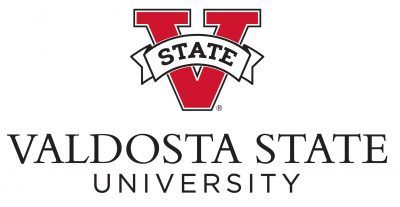April 10, 2024
24-37
Robbyn DeSpain, Director of Strategic Communications
VSU Updates Academic Program Offerings to Align With Demand

|
VALDOSTA, Ga. – In response to recent challenges faced by higher education, such as, increased competition, changing public perceptions, a swift move to online learning, and higher numbers of adults returning to complete degrees, Valdosta State University (VSU) began work last year on an updated strategic plan, VSU2030. The draft plan is designed to ensure VSU is prepared to meet future needs and includes a goal of creating career-ready graduates by aligning its degree program mix with student and employer demand.
As part of this planning effort, VSU conducted a comprehensive review of low-enrolled academic programs. This type of review is an ongoing expectation of the University System of Georgia (USG). VSU established an Academic Working Group (AWG) comprising all six academic deans and a faculty member from each academic college. The group held regular meetings January through March 2024 to evaluate low-enrolled programs falling into one of three categories: those which have appeared on the USG’s low-producing program list for two or more years, those which have more recently appeared, and those at-risk of soon being added to the list.
“This entire group worked diligently to provide and consider historical perspective, context, information, data, and impact regarding all programs,” said Michael Schmidt, dean of the College of the Arts at VSU and AWG participant. “I greatly appreciate the work of our department heads, program coordinators, and faculty members for their meaningful contributions throughout this process.”
The initial criteria to identify these programs followed the USG minimum threshold for the average number of degrees awarded each year for the past three years. The three-year average thresholds of degrees conferred per program are as follows:
- Baccalaureate 10 or fewer
- Masters 5 or fewer
- Doctoral 3 or fewer
VSU also worked with Ruffalo Noel Levitz (RNL), a higher education enrollment consulting company, to conduct an academic program analysis. The AWG used the results of this analysis to study the programs.
“This process was fair and balanced overall,” said Dr. Pierre-Richard Cornely, dean of the College of Science and Mathematics at VSU and an AWG participant. “The program evaluations used a general reference frame template with uniform data sets from VSU and RNL. The process used made comparing programs much easier.”
The group completed its recommendations on March 22, and on April 8 a list of nine academic programs was submitted to the USG for deactivation review and approval.
“The deactivation process was methodical, and the Academic Working Group recommendations were supported by quantitative and qualitative information,” said Dr. Cynthia Royal Tori, professor of economics at VSU and member of the AWG. “Change is never easy, but the Academic Working Group deactivation recommendations are a first step toward reallocating resources to programs that meet the interests of our students and position our graduates to meet market and community needs.”
The subject matter content of some of the programs listed will be transitioned to new degree programs or will become concentrations within existing programs that VSU will continue to offer.
- Bachelor of Arts with Major in French Language and Literature
- Bachelor of Fine Arts with Major in Art Teacher Education
- Bachelor of Science in Education with Major in Special Education
- Bachelor of Science with Major in Applied Mathematics, General
- Bachelor of Science with Major in Physics
- Master of Education with Major in Middle Grades Education
- Master of Arts with Major in History, General
- Master of Arts in Teaching with Major in ESOL
- Clinical Doctorate in Speech Language Pathology
Once approved by the USG, current students majoring in these programs will remain enrolled through a plan to teach out these degrees to ensure that all students in any affected program graduate or successfully transition to an alternate program within the university. Beginning in fall 2024, new students will not be admitted to these programs. An email was sent to students on April 9 notifying them of these changes.
Newsroom
- Office of Communications Powell Hall West, Suite 1120
-
Mailing Address
1500 N. Patterson St.
Valdosta, GA 31698 - General VSU Information
- Phone: 229.333.5800
- Office of Communications
- Phone: 229.333.2163
- Phone: 229.333.5983